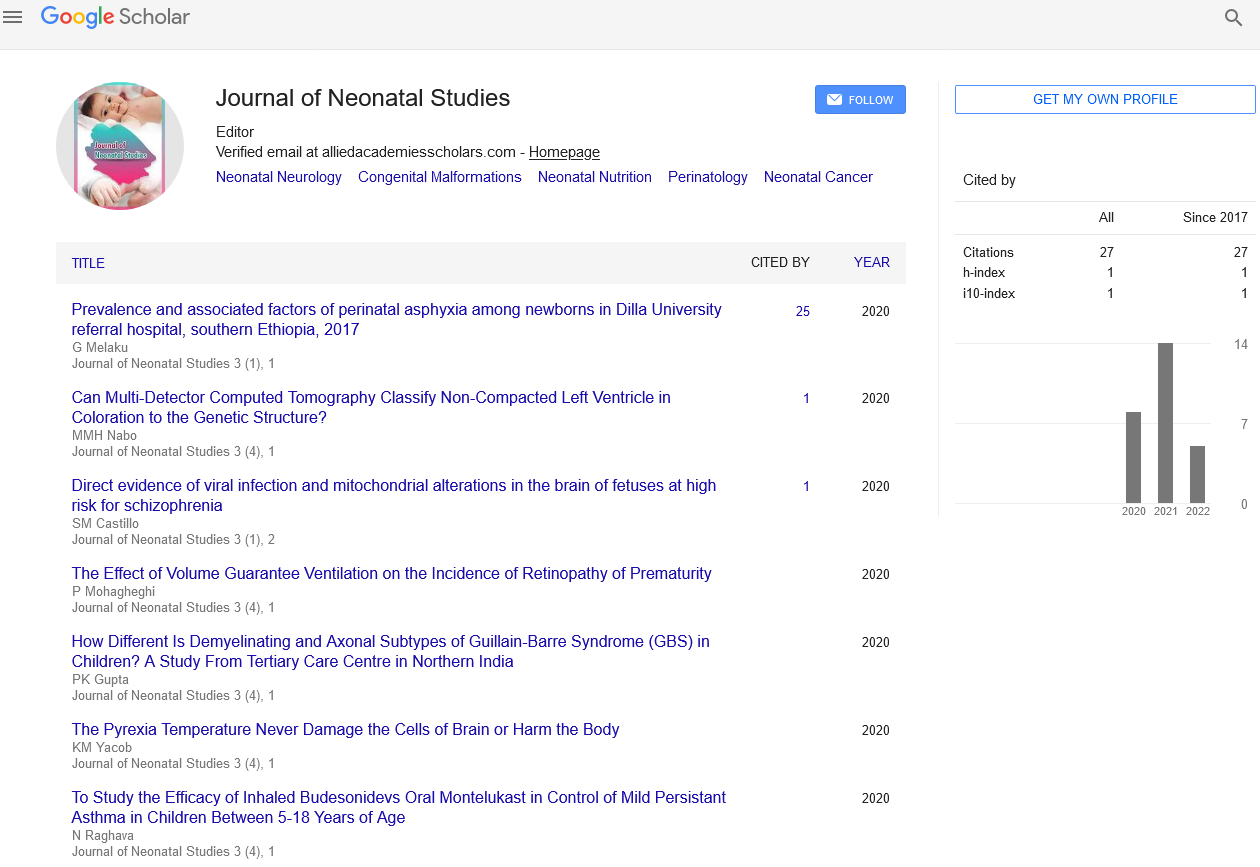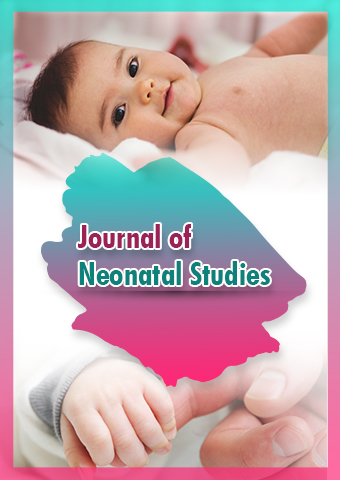Perspective - Journal of Neonatal Studies (2024) Volume 7, Issue 2
Comprehensive Guide to Medicinal Care for Infants: Ensuring Health and Well-being
- Corresponding Author:
- Easton Dylan
Department of Neonatology and Perinatology, Columbia University, USA
E-mail: easton.d@hospitaldejove.com
Received: 01-Mar-2024, Manuscript No. JNS-24-130009; Editor assigned: 04-Mar-2024, PreQC No. JNS-24- 130009 (PQ); Reviewed: 18-Mar- 2024, QC No. JNS-24-130009; Revised: 02-Apr-2024, Manuscript No. JNS-24-130009 (R); Published: 09-Apr-2024, DOI: 10.37532/ JNS.2024.7(2).203-204
Introduction
Medicinal care for infants is a critical aspect of pediatric healthcare, encompassing a wide range of practices aimed at promoting the health and well-being of newborns and young children. From addressing common ailments to managing chronic conditions, providing appropriate medicinal care is essential for supporting the optimal growth and development of infants. In this comprehensive guide, we will explore various aspects of medicinal care for infants, including common health issues, treatment options, safety considerations, and the importance of parental involvement in the healthcare process.
Description
Understanding infant health
Infancy is a period of rapid growth and development characterized by unique physiological and immunological changes. During this time, infants are susceptible to a variety of health issues, ranging from minor ailments to more serious conditions. Common health concerns in infants include respiratory infections, gastrointestinal disturbances, skin rashes, teething discomfort, and fever. While many of these conditions are self-limiting and resolve with time, others may require medical intervention to prevent complications and alleviate symptoms.
Respiratory infections
Respiratory infections, such as the common cold, flu, bronchiolitis, and pneumonia, are among the most common health problems encountered in infants. These infections often present with symptoms such as coughing, nasal congestion, fever, and difficulty breathing. While most respiratory infections are caused by viruses and resolve on their own, some cases may require supportive care, such as humidified air, nasal saline drops, and fever-reducing medications.
In severe cases, infants with respiratory infections may require hospitalization for oxygen therapy and intravenous fluids. It is essential for parents to monitor their child’s symptoms closely and seek medical attention if they worsen or fail to improve within a few days.
Gastrointestinal disturbances
Gastrointestinal disturbances, including colic, reflux, diarrhea, and constipation, are common complaints in infants. These issues can cause significant discomfort and distress for both the infant and their caregivers. While some gastrointestinal disturbances, such as mild reflux and occasional constipation, may resolve on their own or with simple interventions, others may require medical evaluation and treatment.
For infants with persistent gastrointestinal symptoms, healthcare providers may recommend dietary modifications, probiotics, medications to reduce acid reflux, or formula changes. Parents should also ensure that their infant is adequately hydrated and monitor for signs of dehydration, such as decreased urine output, dry lips, and lethargy.
Skin conditions
Skin conditions are another common concern in infants, with conditions such as eczema, diaper rash, cradle cap, and infantile acne affecting many newborns and young children. These conditions can cause discomfort, itching, and irritation, leading to distress for both the infant and their caregivers. While most skin conditions in infants are benign and self-limiting, some may require medical treatment to alleviate symptoms and prevent complications.
Treatment options for infant skin conditions vary depending on the specific diagnosis and severity of symptoms. In many cases, gentle skincare practices, such as regular bathing with mild soap and water, moisturizing with fragrance-free creams or ointments, and using hypoallergenic diapers and wipes, can help improve symptoms and promote healing. In more severe cases, healthcare providers may prescribe topical corticosteroids, antifungal creams, or antibiotics to manage symptoms and prevent secondary infections.
Teething discomfort
Teething is a normal developmental milestone that occurs in infants around six to twelve months of age. During this time, the eruption of primary teeth through the gums can cause discomfort, irritability, drooling, and disturbed sleep patterns. While teething is a natural process that typically resolves on its own, it can be challenging for both infants and their caregivers to manage.
To alleviate teething discomfort in infants, parents can provide teething rings or toys for their child to chew on, gently massage their gums with a clean finger or wet cloth, and offer chilled (not frozen) teething rings or washcloths for additional relief. Over-the-counter pain relievers, such as acetaminophen or ibuprofen, may also be used sparingly to reduce pain and fever associated with teething. However, it is essential to follow the recommended dosage guidelines and consult with a healthcare provider before giving any medications to infants.
Medication safety for infants
When administering medications to infants, parents and caregivers must prioritize safety and accuracy to prevent adverse reactions and ensure optimal therapeutic outcomes. Here are some essential considerations for safely administering medications to infants:
• Dosage accuracy: Always follow the recommended dosage guidelines provided by healthcare providers or medication labels when administering medications to infants. Use calibrated measuring devices, such as oral syringes or droppers, to ensure accurate dosing based on the child’s weight and age.
• Medication storage: Store medications safely out of reach of children in a secure location to prevent accidental ingestion or overdose. Keep medications in their original containers with child-resistant caps intact, and avoid transferring them to unlabeled or unmarked containers.
• Administration technique: Administer medications to infants using age-appropriate methods, such as oral syringes, droppers, or medication spoons. Avoid mixing medications with food or beverages unless directed by a healthcare provider, as this can affect absorption and efficacy.
• Monitoring for adverse reactions: Watch for any signs of allergic reactions or adverse effects when giving medications to infants, such as rash, hives, difficulty breathing, vomiting, or diarrhea. If any concerning symptoms occur, stop the medication immediately and seek medical attention.
• Communication with healthcare providers: Keep healthcare providers informed about any medications, supplements, or over-the-counter remedies your infant is taking to prevent potential drug interactions or complications. Consult with a healthcare provider before starting or discontinuing any medications in infants.
Conclusion
Several medications are commonly used to treat common ailments and health conditions in infants. While these medications can be effective when used appropriately, it is essential to follow dosage guidelines and safety precautions to minimize the risk of adverse effects.

